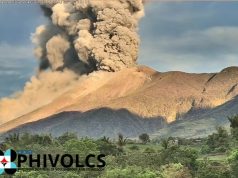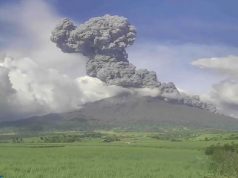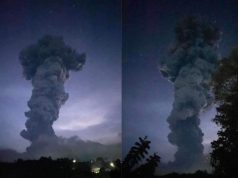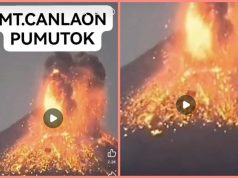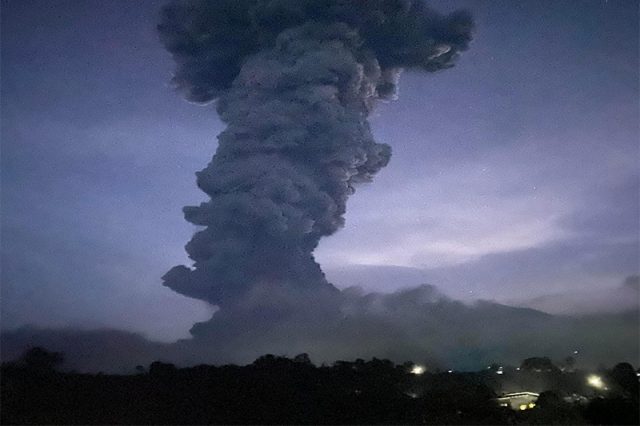
MANILA — Philippine authorities ordered the evacuation of residents living near a volcano in central Philippines on Tuesday following an eruption that sent a five km (three miles) high ash cloud into the sky.
Government officials warned of the possibility of further eruptions of Kanlaon volcano, hazardous ash fall and sulphuric odor. They also warned that rivers downstream from the volcano were at risk of flash floods, mudflows and other hazards.
“Go down to your respective evacuation centers, be vigilant, and prepare important things such as water and food,” Jose Chubasco Cardenas, mayor of Canlaon City in Negros Oriental province, said in issuing the evacuation order via Facebook for residents in four communities near the volcano.
In the nearby Negros Occidental province, more than 700 people were taking shelter in evacuation centers, governor Jose Lacson told DWPM radio station.
“We advise them to stay there, and for those not yet in evacuation centers, I hope they can reconsider.”
Government agencies have yet to report missing, injured, or fatalities since the eruption on Monday.
The six-minute explosive eruption prompted the suspension of work and schools in Canlaon City, while three airlines cancelled 32 flights on Tuesday.
“We advise people to wear face masks to protect themselves from volcanic ash,” Teresito Bacolcol, chief of the state seismology agency, told DZBB radio station.
The agency raised the level for Kanlaon volcano, indicating further eruptions were possible.
Response teams have been deployed in the affected areas to move the residents to safe places, the state civil defense agency said in a statement late Monday.
Kanlaon, one of the country’s two dozen active volcanoes, last erupted in December 2017. The Philippines is in the Pacific “Ring of Fire,” where volcanic activity and earthquakes are common.
—Reporting by Neil Jerome Morales; Editing by Michael Perry




